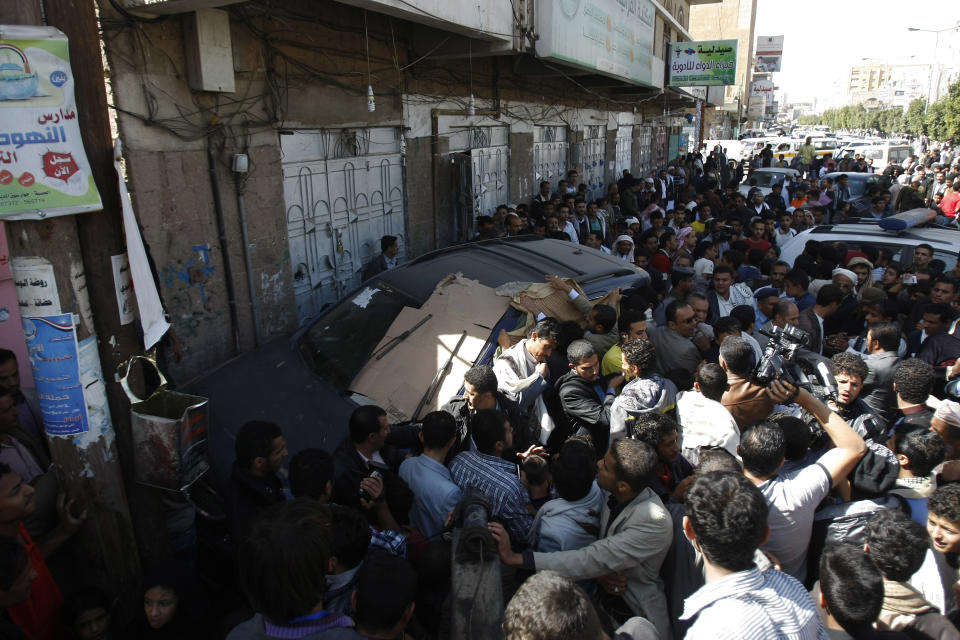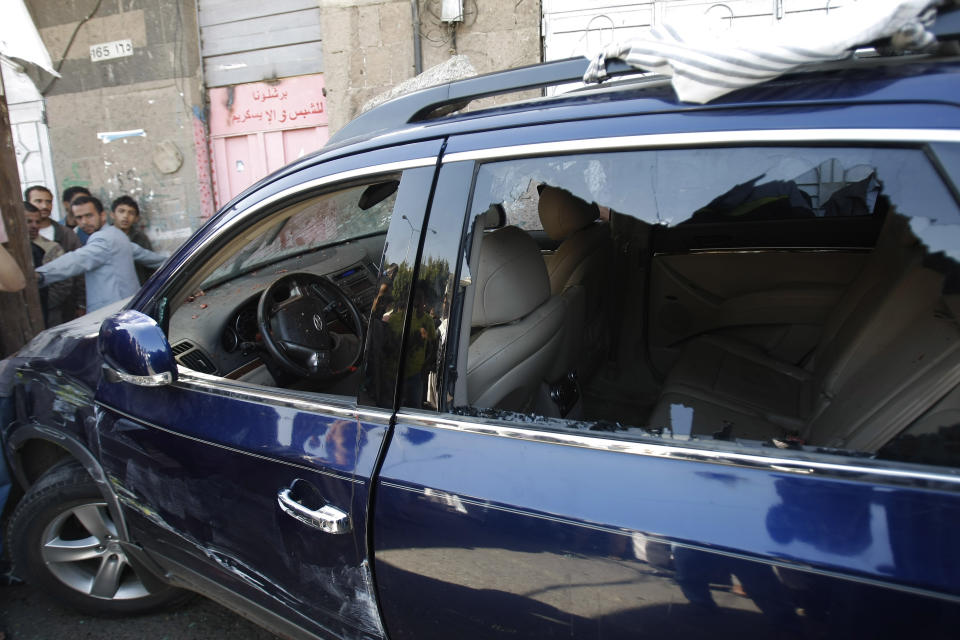Yemen officials say gunmen kill rebel envoy
SANAA, Yemen (AP) — Unidentified gunmen assassinated the top envoy of a northern Yemeni rebel movement in the capital early Tuesday, security officials said.
The officials say Ahmed Sharaf Eddin was gunned down in his car. They spoke on condition of anonymity because they were not authorized to talk to the media.
Sharaf Eddin represented the Hawthi rebels, who are members of a Shiite sect, in the so-called National Dialogue talks. The long-running negotiations bring delegates from across the country to draw up a blueprint for a new constitution under a transition plan in the wake of the country's 2011 uprising.
The Hawthis fought a bloody six-year insurgency against the government that ended with a cease-fire in 2010, but a recent escalation in fighting between them and ultraconservative Sunni tribesmen has turned several northern cities into war zones.
Yemen's President Abed Rabbo Mansour Hadi described Sharaf Eddin as a "martyr" and told National Dialogue representatives that "forces of evil" are trying to stop the country from moving forward along its road map.
"What is happening today is a struggle between the forces of evil and the forces of good," he said. "It's possible that the president himself and those sitting next to me get killed, but you cannot retreat. This is our challenge." He was interrupted by applause.
Officials have used similar rhetoric in the past to refer both to the local branch of al-Qaida as well as Ali Abdullah Saleh, the longtime autocratic leader removed from power in 2012, cast as a mastermind behind a campaign to obstruct reform.
Hadi also announced that the National Dialogue would end on Jan. 25.
The U.N. envoy to Yemen, Jamal Benomar, said the assassination of Sharaf Eddin was an attempt to foil the national dialogue.
"As the political process advances, we see more such desperate attempts," Benomar told The Associated Press. "Such acts will only increase the Yemenis determination to hang on to their new state."
Participants in the six-month conference, held in a heavily fortified five-star hotel, are putting together a new political system. One key feature is federalism, in which the country will be divided to a number of regions that enjoy semi-autonomy.
Benomar said one of the outcomes of the national dialogue would be the formation of a committee to write up a new constitution for the country. The committee would be formed by President Hadi, he said. He said another outcome would be drafting a new law to allow Yemenis to demand restoration of money stolen under the previous regime.
"It is a great sum. If restored, it would benefit the Yemenis and their conditions will be totally different."
In addition to the Hawthis, the government faces a southern secessionist movement. The two rose up against what they describe as discrimination by the central government under Saleh.
The government is also challenged by radical groups outside the political process, notably al-Qaida. Washington considers al-Qaida in Arabian Peninsula to be the terror network's most dangerous offshoot.


